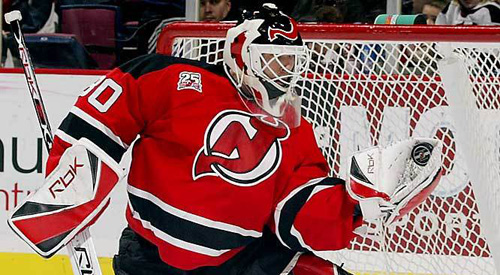
Analyzing regression in the NHL
Last week Tim Kolupanowich looked at a group of NHL players and teams that should rebound this season after struggling in 2011-12. But with every feel-good story about a team on the rise, there is a comparable tale for those that are headed downward.
Here’s a look at some of the teams that might be in for a rough season in 2012-13, provided there is one.
Florida Panthers: Last season the Panthers had a negative-24 goal differential. You have to go all the way back to 1996-97 to find a playoff team with such a poor number in that particular area. That season, the Montreal Canadiens squeaked into the playoffs as an eight-seed after allowing 27 more goals than they scored during the regular season.
Since the lockout, teams making the playoffs with a negative goal differential have regressed in the following season and finished outside the top eight over 60 percent of the time. Teams like the 2006-07 Tampa Bay Lightning or the 2008-09 Columbus Blue Jackets crashed and burned so horribly that they fell all the way into the draft lottery.
Some teams don’t fail as miserably, however. The 2007-08 Boston Bruins were an eight-seed with a negative-10 goal differential and then exploded the next season and finished first in the Eastern Conference on the strength of a postivie-78 goal differential. That Bruins team also had Zdeno Chara win the Norris Trophy and Tim Thomas win the Vezina Trophy, so unless the Panthers get elite seasons from elite players, a massive improvement isn’t likely.
[php snippet=1]
Yet while they might not mimic those Bruins, the Panthers may be able to avoid a major regression simply through internal improvements. Jonathan Huberdeau, one of the league’s top prospects, is almost a lock to make the team up front, and both Erik Gudbranson and Dmitry Kulikov are young, promising defensemen that could help cut down on the goals against as they gain experience. Unfortunately for the Panthers, both will need to take great leaps forward because Florida lost Jason Garrison to the Vancouver Canucks in the offseason.
Detroit Red Wings: For years pundits have predicted the demise of the Red Wings. They continually rank near the top of the league in average age and almost always trade away their first-round picks. Yet season after season they are at the top of the Western Conference.
However, this may finally be the year Detroit can no longer stave off a decline. Nicklas Lidstrom, one of the greatest defensemen of all-time, has retired after winning seven Norris trophies and four Stanley Cups. Lidstrom’s departure leaves a gaping hole on Detroit’s first pairing, one that the team was unable to fill with Ryan Suter, despite making a strong offer.
In addition to losing Lidstrom, Detroit is without Brad Stuart, who signed a three-year deal in San Jose. Stuart was a steadying presence over the last four and a half years and creates another hole in the Red Wings’ top-four.
Losing those two defensemen bumps everyone up in the lineup and means harder minutes for players that might not be able to handle their new roles.
Brendan Smith, a 2007 first-round pick, will look to crack the team and Detroit is rumored to be interested in Calgary’s Jay Bouwmeester, although at this stage of his career he’s little more than an overpaid minute muncher. Even with these two, Detroit’s blue line will be substantially worse in 2012-13.
Henrik Zetterberg and Pavel Datsyuk may still be elite two-way forwards, but with a defense full of holes, the season will rely on Jimmy Howard, who will try to prove he is a true No. 1 goalie, and not just one behind the great Nicklas Lidstrom.
New Jersey Devils: Since the lockout, the team that lost in the Stanley Cup Final has finished the next season with an average of six fewer points. Only one, the 2010-11 Philadelphia Flyers, improved after missing out on hockey’s Holy Grail, and that team was loaded with young talent, including Claude Giroux.
In comparison, the Devils are an old team. Four of their top 10 scorers — Patrik Elias, Petr Sykora, Dainius Zubrus and Marek Zidlicky — are all older than 34. Their goaltender, Martin Brodeur, despite a renaissance playoff performance, is 40-years-old and coming off back-to-back below average seasons.
To make matters worse, they lost their best two-way forward in Zach Parise to the Minnesota Wild this summer and signed no one capable of replacing him.
Unless Adam Henrique has a Claude Giroux-esque breakout year and Adam Larsson, who spent most of the playoffs in the press box, develops quickly into a top-four blue liner, the drop from the top of the league could be steep.
Next season, the Devils are more likely to resemble the 2006-07 Edmonton Oilers, a team that dropped in the standings by 24 points after losing in the Stanley Cup Final, than they are likely to resemble to 2010-11 Flyers.
[php snippet=1]

